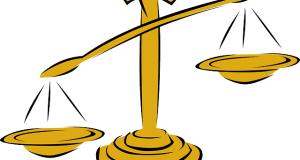Your body depends on two little glands, known as the adrenals, to make cortisol. Adrenal fatigue, also known as hypoadrenia, occurs when the glands suffer an imbalance in their cortisol creation and hormonal regulation. Experts believe that the glands malfunction during times of stress. Unfortunately, the symptoms of hypoadrenia mimic many other conditions so the disorder is often misdiagnosed.
What are Adrenal Glands?
Adrenal glands are a part of the endocrine system. There is one located above each kidney. Each one is only thumb-sized. They produce cortisol but they are also key in the production of 50 key hormones used by the body for a multitude of functions.
Here are just a few of the hormones that the adrenals control:
- Glucocorticoids: These are a family of hormones that balance blood sugar. They also increase energy, regulate food metabolism, relieve stress, and control the body’s immune responses.
- Sex Hormones: The two key sex hormones, estrogen, and testosterone are regulated.
- Mineralocorticoids: These hormones control the body’s blood pressure. They are also important for blood hydration and controlling salt levels.
- Adrenaline/Epinephrine: These hormones maintain your heart health. They also help the liver convert glycogen into glucose.
Controlling Cortisol
The glands control how much cortisol to release into the body. Typically, the glands release more during the day to help you wake up and feel energized. At night the production is lowered. However, in response to stress or fear, the brain will signal the adrenals to release the hormone with adrenaline to amp the body’s fight or flight response. This makes the brain function better, the heart pump more efficiently, the lungs utilize oxygen at optimum performance, and the muscles of the body to respond rapidly. These are all necessary responses that help guarantee your survival in the event of danger or some other immediate peril. However, such a response can also be triggered by unrelenting stress which eventually causes the glands to malfunction, experience fatigue, and burnout.
Symptoms of Adrenal Fatigue
When the key glands in the body start to function incorrectly they can cause several symptoms:
- Extreme fatigue
- Weight gain
- Insulin resistance
- Brain fog
- Hair loss
- Decreased libido
- Depression
- Moodiness
- Muscle loss
- Bone loss
- Dizziness
- Hormone imbalance
- Weakened immune response
- Skin problems
- A constant craving for sweet or salty foods.
- Thin nails
- Afternoon headaches
Causes of Adrenal Fatigue
Although hypoadrenia is predominantly caused by stress it appears to be a Western phenomenon that has started to manifest itself widely. It is believed that the lifestyle of most Westerners is key and probably sets roots for the disorder to flare up in the body during times of emotional upheaval. Pollution, smoking, poor diet, and obesity all help set the stage for the disorder. Diabetes also puts people at an elevated risk.
Causes include:
- Elevated stress
- Environmental toxins
- Pollution
- Negative thinking
- Lack of good sleep
- Poor diet
- Insufficient exercise
- Chronic pain
- A noticeable dependence on energy drinks to get through the day
- Surgery
- Rheumatoid arthritis
- Food sensitivities/allergies
- Chronic pain
Stages of Adrenal Fatigue
There are three stages of failure that commonly occur. Most people will progress from stage onward until they reach stage three. The progression rate varies.
Stage One: The first stage is often referred to as the energetic phase. A person will feel edgy and energized because the cortisol levels are high. Bouts of insomnia and difficulty sleeping are common at this point. Insulin resistance also occurs. It is not uncommon for the person to start experiencing abdominal weight gain. Most people report having energy during stage one but the energy leaves them feeling on edge and uncomfortable.
Stage Two: During stage two the cortisol starts to peak early in the morning and then flattens out. However, at midday and early evening, many individuals experience a rise in the levels. During this stage, many people fall asleep okay but they will wake at around 3 am and be unable to fall back asleep. They will start drag throughout much of the day but midday they may experience a brief uplift.
Stage Three: This is the final stage and is usually the point where the sufferer starts to feel drained 24 hours-a-day. Even if they sleep for extended periods of time they will still feel exhausted. At this point the cortisol flatlines and other hormones such as thyroid and DHEA may also start to be disrupted. The person lacks any energy to do even the simplest task.
How To Overcome Adrenal Fatigue
Yes, there are ways you can improve the condition. You should choose foods that support your adrenals and improve their abilities. On the other hand, you need to avoid anything that stresses the glands.
Foods to Avoid When Your Adrenals are Failing
- Caffeine: Caffeine is notorious for disturbing your natural sleep cycles. Many people feel that they absolutely must have their morning coffee and this is fine but only in moderation and only before noon.
- Sugar: Sugary foods should be avoided. This includes items that contain high fructose corn syrup and artificial sweeteners. If you suffer from a sweet tooth then try turning to natural sources such as raw honey to satisfy your craving.
- Processed Foods: Processed foods and those cooked in the microwave are full of harmful preservatives.
- Processed Meats: Meats that have been processed contain hormones and other substances that upset your body’s balance.
- Carbohydrates: Carbs are not overly bad but they give your body an energy boost which causes stress in an already fatigued person. Also, many people are carb addicts and crave them to an unhealthy extent.
- Hydrogenated Oils: Hydrogenated oils such as corn, canola, and soybean all cause widespread inflammation throughout the body. Healthy oil alternatives are ghee, olive oil, and coconut oils.
Foods to Consume to Combat Adrenal Fatigue
- Olives
- Coconut
- All Nuts
- Bone Broth
- Avocados
- Turkey
- Chicken
- Cruciferous vegetables
- Wild caught salmon
- Fatty fish
- Kelp
- Seaweed
- Seeds
- Mushrooms
- Sea salt
- Fermented foods
- Oysters
- Leafy greens
- Kefir
Helpful Supplements for Adrenal Fatigue
- Vitamin C
- Vitamin D
- B-Complex vitamins
- Magnesium
- Fish Oil
- Selenium
- Lavender oil
- Ashwagandha
- Schisandra
- Holy basil
- Rhodiola root
- Adaptogenic herbs
8 Steps to Heal Adrenal Fatigue
When you suffer from adrenal fatigue, it is time to focus on yourself and getting better. Here are several steps that can help you get on the path to recovery.
- Sleep: Maintain a regular sleep schedule. You should avoid staying up late and getting up early. Instead, try to focus on a set bedtime and wake up time. Ideally, you should receive at least eight hours of sleep per night.
- Stress: Reduce the stress in your life. Perhaps you should turn to a counselor or family if you are experiencing problems. Yoga and meditation are all great stress relievers.
- Rest: Avoid pushing yourself too hard. Rest when you feel tired.
- Exercise: You don’t have to push yourself like an athletic but a bit of daily exercise is ideal. Start out slow and build up your body’s capabilities over time.
- Eat Right: Eat a regular food cycle and focus on good-for-you foods. Avoid known adrenal triggers.
- Have Fun: Today’s lifestyle is hectic by nature and many people spend their time juggling work and leisure. Despite your full schedule, you should focus on having fun and enjoy each day.
- Avoid Negativity: People and things are often negative in life and you should avoid such unpleasant experiences to find a true sense and balance of peace.
- Outdoors: Spending time outdoors is not only relaxing but also rejuvenating.
Time Frame for Full Recovery From Adrenal Fatigue
Recovery from hypoadrenia takes time and dedication. It does not just happen overnight.
Here is a recovery time frame that you can expect before your adrenals start to again function normally:
- 6 to 9 months for minor adrenal fatigue if caught early
- 12 to 18 months of moderate fatigue once you start making lifestyle alterations.
- Up to 24 months for severe adrenal fatigue after you change your lifestyle and diet.
Adrenal Fatigue and Modern Medicine
Physicians often have a difficult time diagnosing adrenal failure. They will run a multitude of test and, in the end, just turn to prescription medication that only maintains the condition and never really returns you to normal by restoring the adrenals. Ultimately, when it comes to this condition, you must be proactive and make the necessary lifestyle changes required by your body so it can heal itself.
When recovering from adrenal fatigue, you will need to refocus your outlook on life. Try to only think about positive things and avoid the drama that often occurs in life. You will want to focus on your whole body in an effort to quickly become healthy. This means alterations in your lifestyle as well as your mental thoughts. The road back from adrenal fatigue is going to take dedication and commitment. You will need to learn new coping mechanisms for stress, change your diet, and focus on both your physical and emotional needs. However, in time, you can recover and return to feeling good.
References:
https://www.mindbodygreen.com/0-17502/9-steps-to-heal-adrenal-fatigue-naturally.html
https://drjockers.com/heal-adrenal-fatigue/
http://www.foodmatters.com/article/treating-chronic-fatigue-and-adrenal-fatigue-naturally
https://drwillcole.com/15-ways-to-heal-adrenal-fatigue-naturally/






